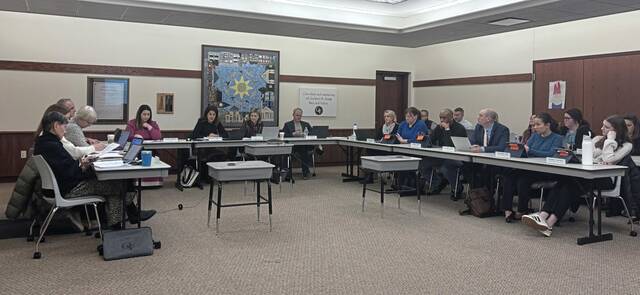New Wharton real estate course responds to changes in field with data analytics focus


Credit: Zenna Haroon
A new course in the Wharton School’s Real Estate department will teach students how to use data analytics to guide real estate investments.
The half-semester course — titled “REAL 3700X: Real Estate Data Analytics” — will be taught by real estate and finance professor Benjamin Keys beginning in spring 2025. Keys told The Daily Pennsylvanian that there has been a proliferation of new data sources driving decision making in the world of real estate, and his course aims to prepare students for successful careers in the real estate industry.
“There’s a lot of innovation in the data that the [real estate] industry now has at their fingertips … data on getting better measures of rents and vacancies, better spatial data on nearby amenities, or data on where schools are or the crime rate of a neighborhood,” Keys said.
The course will help students understand where real estate data comes from and use statistical methods to manipulate, visualize, map, and apply business analytics tools to analyze real estate data on aspects like properties, mortgages, and macroeconomic indicators, according to Keys.
Keys said that the course will bring in a series of guest speakers from the real estate industry who can speak to the data that they use and how they use it to make better choices. The speakers will discuss the successes and failures they have had using new data sets to advise their investment decisions.
He added that he designed the course to be accessible to students both with and without statistical or real estate experience — suggesting that it will operate as both an entry point for students new to the subject matter while exposing new datasets and spatial applications to students who are more statistically inclined.
Students enrolled in the course will need to complete small homework assignments, a group case project, and an individual project, according to Keys, who added that his lecturing will be supplemented by hands-on coding and data exercises as well as guest speakers.
Wharton junior Klayton Koehler, who is studying finance and real estate, told the DP that he is interested in the course’s data analytics focus. He added that he believes that it would be helpful to gain experience using the R platform, combined with hearing about real world experiences of people in the real estate industry.
Koehler contrasted the course from others in the Wharton Real Estate department, which he called more aligned towards “traditional financial analysis and a pro forma approach to real estate investment.”
“Something like this that really looks at data aggregation and using quality data as different,” Koehler said. “It’s another quantitative approach to real estate investment that I think can be really valuable for students to have as a toolkit.”
Koehler added that he would also like to see a new course in the Real Estate department focusing on alternative real estate investment — specifically looking at non-traditional asset classes and investments outside the major five real estate categories — as he thinks it would encourage students to look at real estate differently. He cited the proliferation of careers in the space of real estate data analytics.
“A lot of real estate firms have an incredible amount of data resources that still in many ways aren’t fully tapped,” Keys said. “I think there’s still some opportunities there to use data to make better choices.”
The Daily Pennsylvanian is an independent, student-run newspaper. Please consider making a donation to support the coverage that shapes the University. Your generosity ensures a future of strong journalism at Penn.
Donate
link





